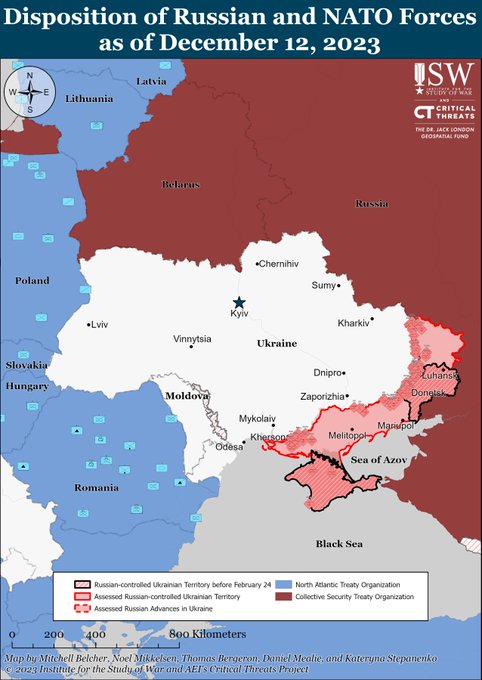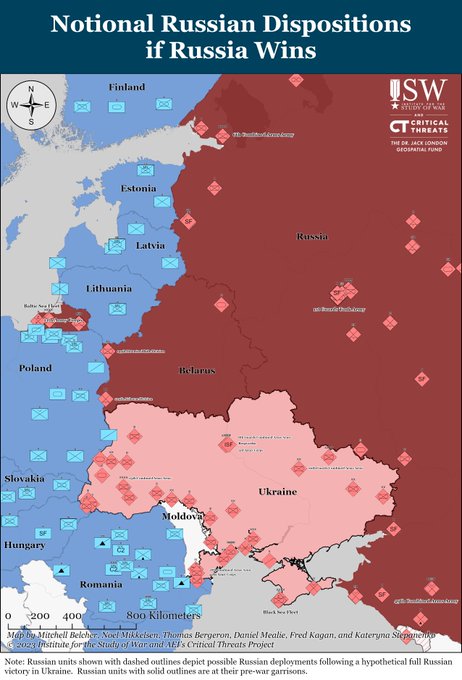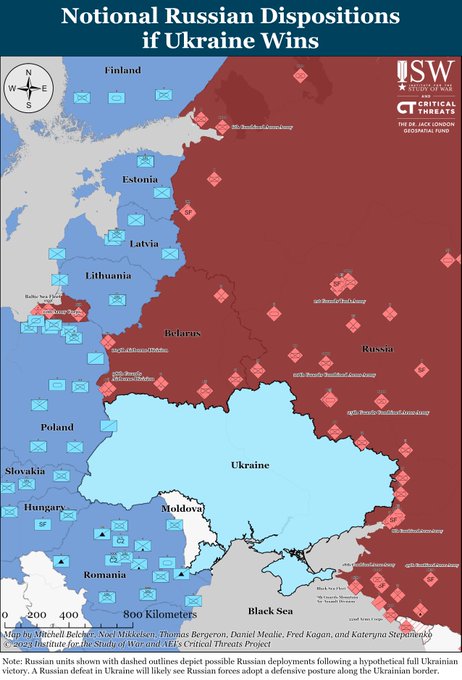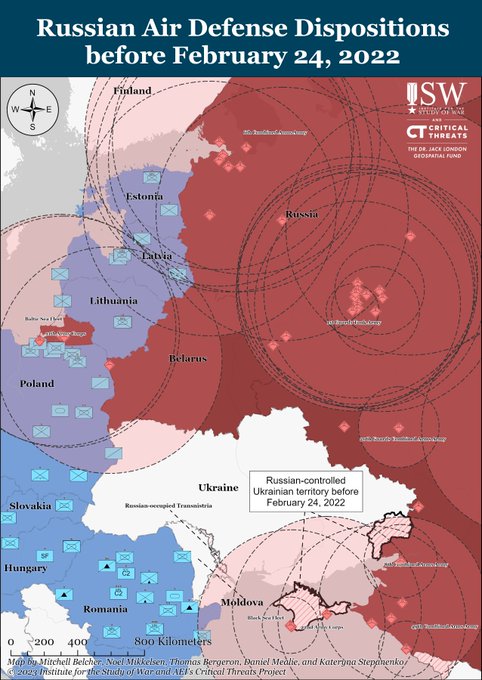1/ As Americans consider the costs of continuing to help Ukraine fight the Russians in the coming years, they deserve a careful consideration of the costs of allowing Russia to win. (1/19)
2/ A Russian conquest of all of Ukraine is by no means impossible if the United States cuts off all military assistance and Europe follows suit. Such an outcome would bring a battered but triumphant Russian army right up to NATO’s border from the Black Sea to the Arctic Ocean.
3/ If Russia wins, a victorious Russian army at the end of this war will be combat experienced and considerably larger than the pre-2022 Russian land forces.
4/ A hypothetical Russian victory would allow the Russian economy to gradually recover as sanctions inevitably erode and Moscow develops ways to circumvent or mitigate those that remain.
5/ A victorious Russia would over time replace its equipment and rebuild its coherence, drawing on a wealth of hard-won experience fighting mechanized warfare.
6/ If Russia wins in Ukraine, it will bring with it advanced air defense systems that only American stealth aircraft—badly needed to deter and confront China—can reliably penetrate.
7/ Russian victory in Ukraine would allow Russia to pose a major conventional military threat to NATO for the first time since the 1990s in a timeframe set to a considerable extent by how much the Kremlin invests in its military.
8/ To deter and defend against a renewed Russian threat following a full Russian victory in Ukraine the US would have to deploy to Eastern Europe a sizable portion of its ground forces.
9/ The US would have to station in Europe a large number of stealth aircraft, likely forcing the US to make a terrible choice between keeping enough in Asia to defend Taiwan and its other Asian allies and deterring or defeating a Russian attack on NATO. isw.pub/Ukraine121423
10/ The entire undertaking would cost a fortune, and the cost would last as long as the Russian threat continues—potentially indefinitely. Almost any other outcome of the Ukraine war is preferable to this one.
11/ Helping Ukraine keep the lines where they are through continuous Western military support is far more advantageous and cheaper for the US than allowing Ukraine to lose.
12/ “Freezing” the conflict is worse than continuing to help Ukraine fight—that would simply give Russia time and space to prepare for a renewed war to conquer Ukraine and confront NATO.
13/ Helping Ukraine regain control of all or most of its territory would be much more advantageous, as it would drive Russian forces even further to the east.
14/ Best of all, supporting Ukraine to its victory and then helping it rebuild would put the largest and most combat-effective military on the European continent at the forefront of the defense of NATO—whether Ukraine does or does not ultimately join the alliance.
15/ ISW has today published a new report and accompanying maps that illustrate four military situations related to this war and its outcomes and consider their military-strategic and financial implications for the US. Read it here:
16/ We have considered elsewhere the important question of possible Russian escalations in the face of defeat and we do not minimize those considerations.
17/ We have argued strongly that American values align with American interests in Ukraine and that there is a strong and cogent values-based argument for helping Ukraine liberate all its land and its people. We still believe that that is true.
18/ But the American people are being asked to spend a lot of money helping Ukraine fight Russia, and it is not unreasonable for them also wonder what the financial cost of not helping Ukraine would be.
19/ This essay is meant solely to serve as a departure point for a data-driven and realistic discussion answering that question. Read the full piece:
Institute for the Study of War






